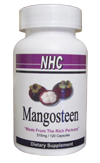Treating
Parkinson's
Disease Naturally
Parkinson's
disease (PD) is a degenerative
disorder of the central nervous
system that
affects neurons that control movement,
leading to impairments in the
sufferer's
motor skills, speech, and other functions. Parkinson's belongs
to a group of
neurologic conditions called motor system
disorders, which are the
consequence
of the insufficient formation and action of
dopamine by dopaminergic
neurons in
the substantia nigra of the brain. Dopamine
normally transmits signals
that
help coordinate movements. The mechanism
that results to the damages of
these
cells remains unknown.
As Parkinsonís
progresses, patients may present with
difficulty walking, talking, or
accomplishing simple tasks. The disease
usually affects people over the
age of
50 and it is more common in men than
women. The early symptoms
are subtle
and develop slowly, but in some patients the
disease can progress more
quickly.
Moreover, while some patients become
severely disabled, others only
experience
minor motor impairments. To date, no blood
or laboratory tests have
been
developed to accurately help in diagnosing Parkinsonís.
In most cases,
the diagnosis is based on medical history
and neurological
evaluation.
The disease is difficult to diagnose
accurately so doctors may request
for
brain scans such as CT scan or MRI and
laboratory tests to rule out
other
diseases.
Parkinsonís Disease
Symptoms
Parkinsonís
disease has four primary
symptoms
which include tremor, or trembling of the
hands, arms, legs, jaw, and
face;
rigidity, or stiffness of the arms, legs
and trunk; bradykinesia, or
slowness of
movement; and postural instability, or
poor balance and coordination.
Of these,
tremor is the most apparent symptom and it
is normally a rest tremor
which
means it is more evident when the limb is
at rest and disappears with
voluntary
movement and sleep. Rigidity is due to
joint stiffness and increased
muscle
tone which is usually associated with
joint pain. Bradykinesia
is
the most characteristic
clinical feature of the disease and it
causes difficulties with
planning,
initiation and execution of movement. In
the advanced stages postural
instability is common and can lead to
falls. It is also the symptom
that is
least responsive to treatment.
Other
symptoms of Parkinsonís include
a
mask-like facial expression, small
handwriting
(micrographia), depression and
other emotional changes;
difficulty in
swallowing (dysphagia), chewing, and
speaking; urinary problems or
constipation; skin problems; and sleep
disturbances. Gait and
posture may
also be affected such as decreased arm
swing, a stooped posture and the
use of
small steps when walking.
Parkinsonís
Disease Treatment
There
is no cure for
Parkinsonís
but a variety of medications provides relief
from
symptoms. Patients are usually given
levodopa combined with
carbidopa. Carbidopa is a dopa
decarboxylase inhibitor which
delays the
conversion of levodopa into dopamine until it
reaches the brain.
Dopaminergic neurons can utilize levodopa to
make dopamine and
replenish the
brain's supply. While levodopa is
effective in at least
three-quarters of
patients, not all symptoms respond equally to
the drug. Bradykinesia
and
rigidity respond favorably, while tremor may
be only slightly reduced.
Balance
and other symptoms may show no response at
all. Anticholinergics
may help
control tremor and rigidity. Dopamine
agonists are also used to
mimic the
role of dopamine in the brain, causing the
neurons to react as they
would to
dopamine. However, these drugs have known side
effects such as
somnolence,
hallucinations and/or
insomnia.
In
some cases, surgery may be indicated if the
disease fails to respond to
medication. In addition, a therapy called
deep brain stimulation (DBS)
has
gained the approval of the U.S. Food and
Drug Administration. DBS can
reduce
the need for levodopa and other drugs, which
in turn reduces
involuntary
movements that are a common side effect of
levodopa. DBS also helps to
reduce
tremors, bradykinesia and gait difficulties.
Mangosteen Help
for Parkinsonís
Disease
Parkinsonís is
one
of
those idiopathic forms of disease that
leave their victims wondering
what
could help improve their condition.
Medications do help but you have to
live
with the side effects they carry. There
are many promising cures and
remedies
that are going through further studies and
clinical trials but one
outstanding
fruit has shown positive results and
virtually all tests that it has
gone
through, the mangosteen.
Mangosteen
supplements are being integrated into
the treatment regimen of
patients
suffering from
Parkinsonís.
Whatís great about it is that it is all
natural and
therefore has no deleterious side effects, and
more importantly it does
help
Parkinsonís
patients in a number of ways. In the
United States,
mangosteen is
known
to help in the treatment of everything from
depression to
Parkinson's and it is
believed that Michael J. Fox has benefited
from it. The secret to the
healing
properties of
mangosteen
lies on a group of compounds called xanthones.
They
are among the most potent antioxidants known
to man. This property is
of utmost
importance in relation to
Parkinsonís
because it is a known fact that oxidative
damage to the brain is a significant cause of
the disease and other
neurologic
disorders. Because
mangosteen
is one of the best antioxidants in the planet,
it
is highly effective in preventing mental
degeneration and it has been
shown to
improve mental acuity.
Xanthones
as an antioxidant is more powerful than any
vitamin. In fact it is five
times
more powerful than vitamins C and E. It is
this antioxidant property of mangosteen
that is rousing the interest of those who
are trying to crack the
code that could lead to definitive cure for
Parkinsonís. The
dopaminergic
neurons in the brainís substantia nigra that
produces dopamine is
susceptible
to free radical damge, much like any other
cells in the human body. The
antioxidant
properties of xanthones can therefore be
harnessed during the early
stages and
throughout the entire course of the disease
to protect those neurons
that
produce dopamine. If they stay
healthy,
there will be no shortage of dopamine in the
brain and patients can get
their
much needed relief from the scourge of Parkinsonís.


